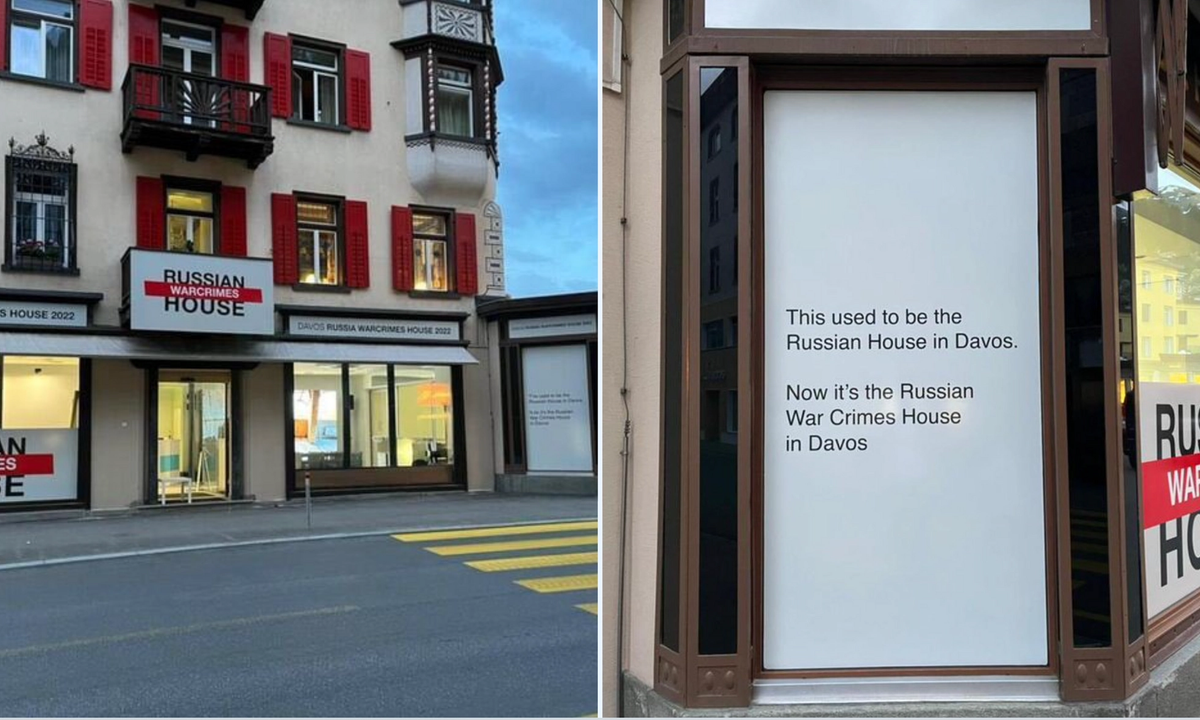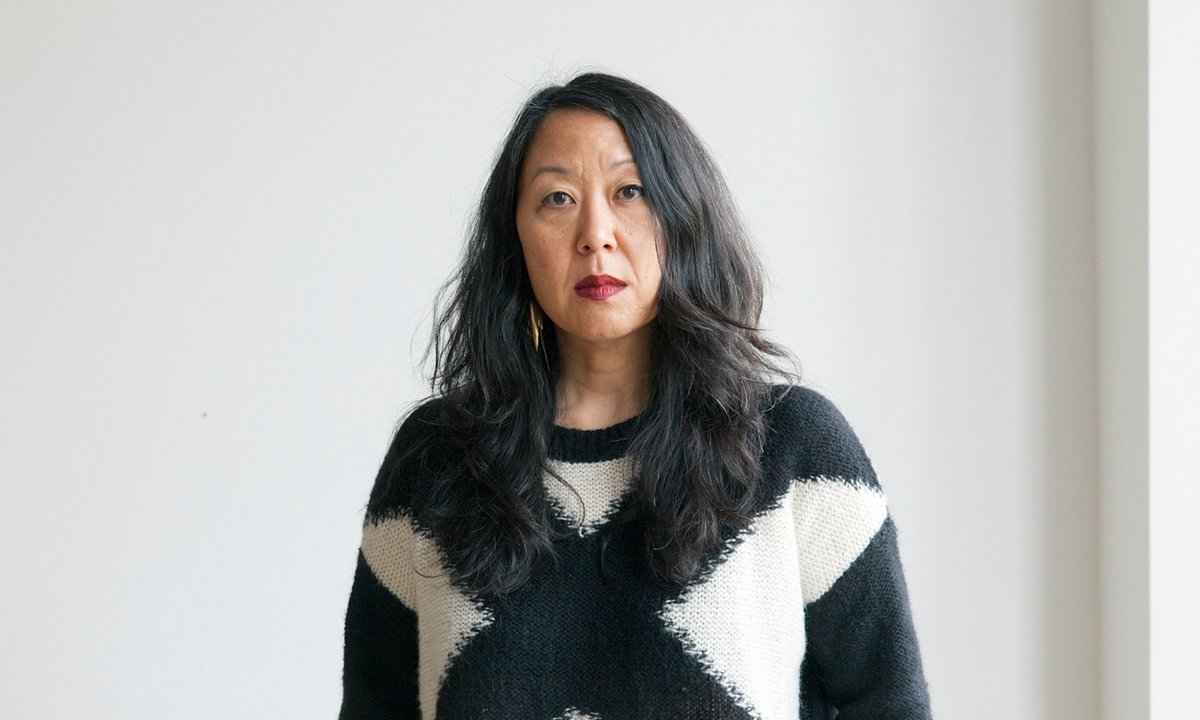As the world’s wealthiest descend on the Swiss ski town of Davos for the annual World Economic Forum, a group of artists are ensuring that the mounting human cost of the war in Ukraine is placed firmly at the centre of this week’s proceedings.
Typically during the summit, which begins today and runs until 26 May, Russian delegates stay and host parties in a building known as Russia House. This year, with no Russians invited to the conference amid widespread sanctions against the country provoked by its military aggression, the house lies empty. Making use of this opportunity, a number of Ukrainian artists and art workers have rented the building to stage the exhibition Russia War Crimes House (until 26 May) that focuses on alleged war crimes being commited by Russia in Ukraine. In the building’s front window, where once passersby could glimpse Russian billionaires rubbing shoulders with other members of the global elite, a sign now reads: “This used to be the Russian House in Davos. Now it’s the Russian War Crimes House in Davos.”
Photograph by Mstyslav Chernov shows doctors attempting to resuccitate a young girl in the beseiged city of Mariupol. Courtesy of the artist and Russia War Crimes House
Works in the harrowing exhibition include documentary photography of bombed out cities in Ukraine and corpses lying in the street, their faces covered by tarpaulin. In a large photograph taken on 27 February, Mstyslav Chernov shows doctors attempting to resuscitate a little girl, who was wounded from shelling, in the besieged city of Mariupol. An 11-minute video work by Oleksiy Sai provides a voiceover to almost 5,000 photos that allege various war crimes, including murder, rape and mutilation. Also in the voiceover are recordings that the artist claims are of Russian soldiers admitting to raping and killing Ukrainian civilians “without remorse”.
On an opposite wall is an “incomplete map of Russia’s war crimes in Ukraine as of 9 May”, which shows the geographic spread of dozens of alleged atrocities commited by Russian troops in Ukraine. Alongside these works, the exhibition will also be used as a site for a series of discussions by Ukrainian officials.
The exhibition has been co-organised by the Victor Pinchuk Foundation and the Kyiv-based museum Pinchuk Art Centre, both named after their founder, the billionaire Ukrainian steel oligarch and collector Victor Pinchuck.
A number of Ukrainian politicians and leading humanitarian figures spoke at the exhibition’s opening today, which was livestreamed on Youtube and reported via the Pinchuk Foundation’s Twitter. These included Andriy Yermak, the head of Ukraine’s presidential administration, and the mayor of Bucha, Anatolii Fedroruk. Requests for the international commuity to punish Russia were made, as well demands for reparations from Russia worth “several billions of dollars” to rebuild Ukraine.
The exhibition opened ahead of an official address that will be given today by Ukrainian President Vlodymyr Zelenksy via video link to guests at the World Economic Forum. Last month, Zelensky addressed crowds at the Venice Biennale, also via video link, at an ongoing satellite exhibition organised by the Pinchuk Foundation in Venice, titled This is Ukraine.
Zelenksy is the first head of state to speak at this year’s forum, which has adopted the theme History at a Turning Point and where Ukraine is set to be a main focus. A slew of official panels will address the impact of the war on the landscapes of business, trade and international policy. Some senior Ukrainian officials are attending the Davos meeting in person, including the foreign minister, two deputy prime ministers and the mayor of Kyiv.
A number of countries, including the UK and the US, recognise that Russia is currently committing war crimes in Ukraine, according to official government reports. Moscow has denied allegations that its troops targeted civilians during the invasion, while Ukraine says more than 11,000 war crimes may have occurred, the BBC reports.
Today, a Ukraine court convicted the first Russian for war crimes, according to The New York Times, sentencing the captured Russian soldier Vadim Shishimarin to life in prison for killing Oleksandr Shelipov, 62, in the north-eastern village of Chupakhivka on 28 February. The solider admitted to shooting Shelipov but said he had been acting on orders and asked forgiveness of his widow. Multiple other alleged war crimes are now being investigated by Ukraine.







